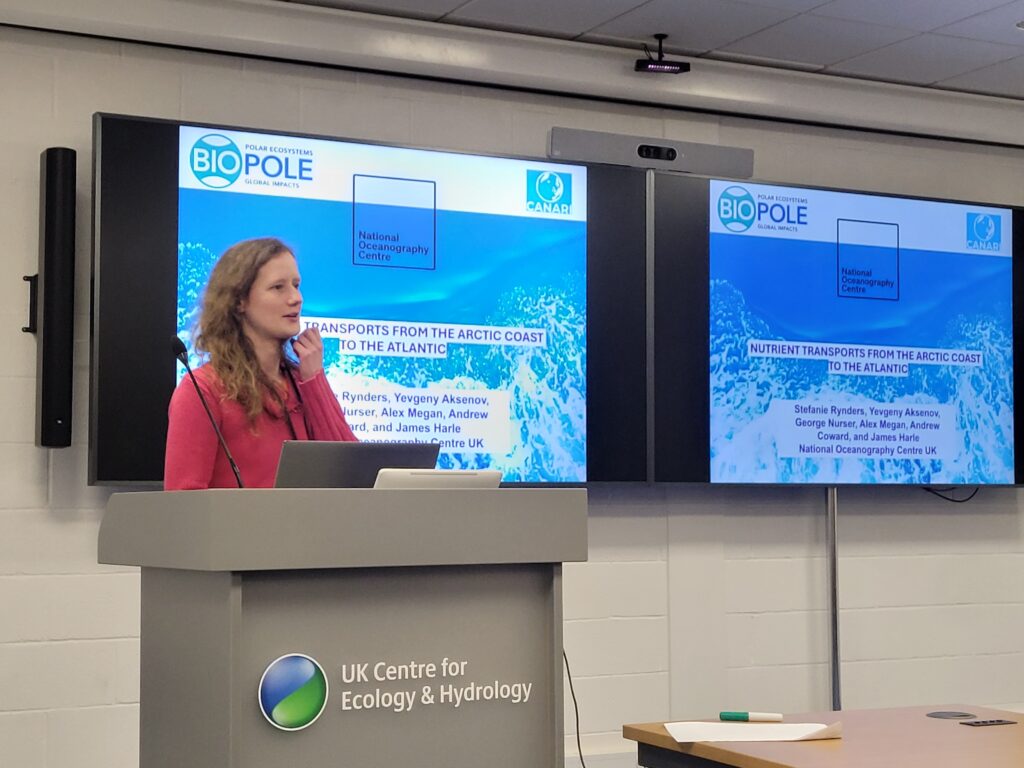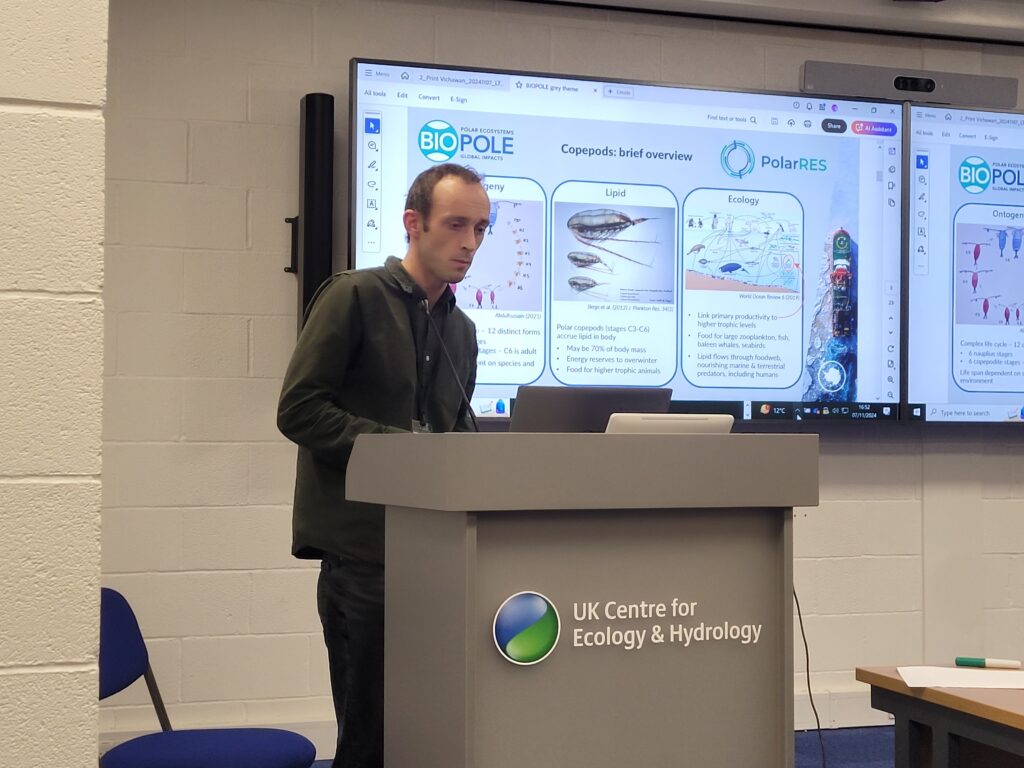Four BIOPOLE researchers, Stefanie Rynders, Aidan Hunter, Adrian Martin, and Geraint Tarling, attended the National Capability Long-Term Science Multicentre 2 (NC LTSM 2) meeting in November. The NC LTSM is a group of NERC funded, multi-institute programmes, each with collaboration and networking between UK research centres woven into the project design. The projects tackle current environmental concerns around the UK, for instance: AgZero+ is researching innovative farming methods that promote soil health and biodiversity while maintaining farmer’s profits; CHAMFER studies complex coastal systems and associated hazards of erosion and flooding; MOET is surveying seabed geology to identify areas suitable for under-seabed carbon dioxide storage; and by further developing hydrological models, hydroJULES supports many researchers interested in land-atmosphere feedbacks, carbon and nutrient cycles, and hydro-climatic extremes. BIOPOLE may seem somewhat disconnected from these other UK-centric projects, but our project motto is “polar oceans, global impacts”, which includes impacts to the British Isles. BIOPOLE’s closest NC LTSM link is with the CANARI project, that is researching how Arctic and North Atlantic atmosphere and ocean variability impacts the British Isles.
The NC LTSM 2 meeting, hosted by UKCEH in Wallingford, was a relaxed two-day event with the primary aim of getting the PIs and some ECRs from each project in the same room to talk in person. The meeting kicked off, early afternoon, with the PIs briefly describing each project. We then enjoyed a series of 12 interesting presentations from ECRs including Stefanie Rynders describing her work on physical ocean dynamics and Aidan Hunter talking about polar copepods and the lipid pump. Refreshed by a pleasant evening in a nearby pub, we spent the next morning hearing about the current status and future plans of each project, and discussing potential collaborations, public outreach, project midterm reviews, and a potential NC LTSM 3. It was a productive and engaging meeting all-round, though perhaps the ECRs found it more enlightening than the senior scientists who were already well aware of this diverse research group – I previously had no idea BIOPOLE was one of several large NC LTSM projects.
The author of the blog – Aidan Hunter (British Antarctic Survey)


